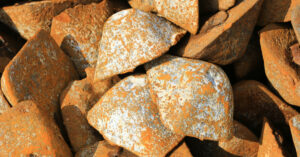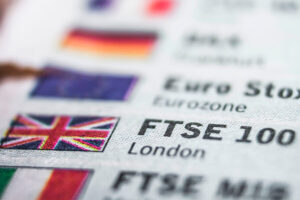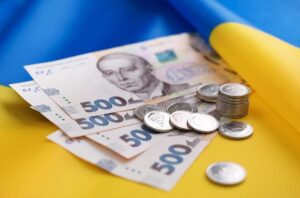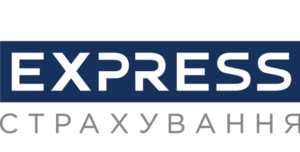
The US continues to occupy a leading position among buyers of Ukrainian recycled pig iron: in the first half of 2025, the US market accounted for more than 77% of foreign exchange earnings from exports of this product.
According to data from the State Customs Service, Ukraine increased its pig iron exports by 47.5% in volume terms in January–June, to 883,200 tons, compared with 598,900 tons in the same period of 2024. In monetary terms, exports grew by 54.6% to $349.4 million.
The main destinations for exports in the first half of the year were:
The US — 77.36% of export revenue;
Italy — 11.96%;
Turkey — 4.91%.
Earlier, on March 12, 2025, the administration of US President Donald Trump imposed 25% tariffs on Ukrainian metal products, with the exception of cast iron. This allowed Ukrainian exporters to maintain their competitive position in the US market and, as statistics show, increase supplies.
At the end of 2024, Ukraine exported 1.29 million tons of processed cast iron worth $500.3 million, of which 72.6% went to the US. Thus, in 2025, the US not only retained its status as a key trading partner in this segment, but also strengthened its importance for the Ukrainian metallurgical sector.

Traders’ confidence that Trump will not follow through on his threats to impose tariffs pushed the London Stock Exchange index to 8,979 points
The FTSE 100 index, which includes the most valuable companies on the London Stock Exchange, rose to a record high as investors shrugged off concerns about Donald Trump’s trade wars.
On Thursday, the FTSE 100 index approached the 9,000 mark, rising to 8,979 points, exceeding its previous record of 8,908 points.
Shares in London rose amid a global rally as traders became confident that Trump would either reach agreements with US trading partners or again delay or cancel the threat of tariffs.
Mining companies led the FTSE 100 gains, with Anglo American, Glencore and Rio Tinto rose by around 3.8%.
Victoria Skolar, head of investment at Interactive Investor, said: “Commodities are driving the FTSE 100 higher, with copper in positive territory and gold rising on a weaker US dollar.”
The FTSE 100 ended the day at a new record high of 8,975 points, up 108.6 points, or 1.23%, on the day.
The blue-chip index has risen more than 9% in 2025, recovering from sharp losses in early April when markets slumped after Trump announced new tariffs as part of his so-called “freedom day,” then rebounded after he delayed their implementation.
Precious metals producer Fresnillo has been the FTSE 100’s top performer this year, with its shares rising 140% since January 1 amid rising gold and silver prices.
Shares in British defense company Babcock have doubled this year, while arms manufacturer BAE Systems’ shares have risen 63% since the start of the year on expectations of increased defense spending amid the ongoing war between Russia and Ukraine.
Shares rose this week despite Trump’s announcement of new import tariffs from August 1, which were postponed from July 9.
Chris Beauchamp, chief market analyst at IG, said investors were in an “euphoric summer mood.”
“Perhaps most notable is the market’s apparent indifference to escalating trade tensions. Trump’s 50% tariff on copper imports and threats against Brazil have elicited a muted response. Many now view such statements as political posturing, which Taco summed up as: Trump always backs down,” he said.
The German DAX index also hit a record high on Thursday. It has risen more than 23% since the start of the year thanks to German Chancellor Friedrich Merz’s plans to increase government spending to stimulate investment and economic growth.
The FTSE 100 is considered an indicator of optimism about the global economy, as many of the largest companies listed in London are globally oriented.
Suzanne Stritter, head of money and markets at Hargreaves Lansdown, said: “The FTSE 100 is full of multinational companies that are sensitive to the outlook for the global economy. With so-called ‘Taco trade’ in full swing, it is benefiting from more optimistic sentiment.”
She added: “Investors expect Trump to ‘back down’ and not follow through on his threats.”

This amount of revenue is UAH 37.6 billion, or 13.4% more than in the same period of 2024. Among the main budget-forming goods that provided the largest revenues in January-June 2025, the following are in the lead:
– petroleum products – UAH 71.1 billion;
– passenger and freight vehicles – UAH 30.3 billion;
– petroleum gases – UAH 9.3 billion;
– mineral fertilizers – UAH 6.8 billion;
– fungicides, herbicides – UAH 6.0 billion;
– telephone sets – UAH 4.1 billion;
– cigars, cigarillos, and cigarettes – UAH 4.0 billion;
– coal – UAH 3.9 billion.
The main budget-forming goods, whose import growth ensured a significant increase in customs revenues in the first half of this year compared to the same period last year, were:
– petroleum products – by UAH 8.2 billion;
– petroleum gases – by UAH 4.8 billion;
– passenger cars – by 3.7 billion UAH;
– cigars, cigarettes, cigarillos – by 3.2 billion UAH;
– coal – by 2.3 billion UAH;
– agricultural machinery and equipment – by 1.1 billion UAH;
– electricity – by 1.1 billion UAH.
In turn, customs revenues were affected by a steady increase in the share of customs duties assessed on the import of certain goods into Ukraine in accordance with the legally approved list of exemptions. Thus, the total amount of customs duty exemptions on imports of goods in January-June of this year amounted to UAH 140.12 billion, which is 42% or UAH 41.61 billion more than in January-June 2024.

In June 2025, Express Insurance paid out UAH 42.3 million, which is 3.6% less than in the same period last year, according to the insurer’s website. This included UAH 33.8 million paid under comprehensive insurance contracts and UAH 8.5 million under compulsory civil liability insurance (OSAGO).
In June 2025, the company settled 726 insurance claims under CASCO and OSAGO contracts. Of these, 535 claims were for CASCO, and another 191 were for compulsory civil liability insurance.
Incidents under CASCO contracts in June mainly concerned traffic accidents (89%), unlawful actions of third parties (9%), falling objects, as well as fires and explosions caused by military actions (2%).
For example, in the capital, five customers reported damage to their cars as a result of falling debris from missiles and UAVs. The total amount of compensation for these events amounted to UAH 394,000, with an average settlement period of 15 days.
Most insurance events related to traffic accidents occurred in Kyiv and the surrounding region – 289 (61% of traffic accidents) – a decrease of 8% compared to May. The Company’s experts also recorded a decrease in traffic accidents in June in the Lviv (-19 compared to May), Cherkasy (-12), Odessa (-9), and Dnipropetrovsk (-4) regions. However, in the Zakarpattia region, the number of insurance claims for traffic accidents increased by 57% in June, to 11.
As for MTPL insurance, in more than 58% of cases, the victims reported the accident with the police, and another 42% used the Europrotocol procedure. The largest payment in June to victims for property damage under MTPL policies amounted to UAH 170,000 due to a traffic accident in Lutsk, and UAH 109,400 for health damage to victims of a traffic accident in the Sumy region.
Express Insurance was founded in 2008 with the participation of the Ukrainian automotive market leader, UKRAVTO GROUP. The company specializes in auto insurance. The company is represented in more than 60 sales outlets throughout Ukraine and is actively expanding its network of partner service stations. Today, the number of service station partners exceeds 100.

NAEK Energoatom and Holtec International signed an agreement on the margins of URC-2025 in Rome, which provides for the construction of a plant for the production of small modular reactors (SMR) and spent nuclear fuel (SNF) containers using Holtec technology, Energoatom head Petr Kotin said.
“The agreement with Holtec is also a forward-looking agreement. It fixes what we plan to do with them. This is a plant to produce SMRs in Ukraine using their technology. They also transfer to us the technology of production of SNF containers,” Kotin said in comments to Interfax-Ukraine after signing the document.
He recalled that Holtec technology was used to build the Centralized Spent Nuclear Fuel Storage Facility (CSNFSF), which constantly needs new containers for it.
“Containers are needed all the time for spent fuel. They are now produced in the United States, and later we will produce them in Ukraine. It will be cheaper,“ – explained the head of ”Energoatom”.
As reported, Energoatom and Westinghouse on the margins of URC-2025 in Rome finalized agreements on the production in Ukraine of nuclear fuel using the technology of the American company.
“We signed a memorandum that consolidates everything that has already been done with Westinghouse (…). And this was just the summarizing part of the documents,” Kotin said in comments to Interfax-Ukraine after signing the memorandum.
Ukraine has not bought nuclear fuel from Russia since 2020 and has also refused to buy spare parts for nuclear reactors.
In June 2022, Energoatom and Westinghouse signed an agreement to supply nuclear fuel for all Ukrainian nuclear power plants.
The CCNF is an autonomous nuclear facility designed for long-term storage of spent nuclear fuel from the Pivdenno-Ukrainian, Khmelnytsky and Rivne NPPs, which until 2021 was exported to Russia for storage and reprocessing, costing Ukraine about $200 million annually. Fuel from these NPPs was supposed to be received by the Central Nuclear Fuel Storage Facility from April 2022, but the war corrected these plans, and the fuel was stored at the plants themselves until 2023, when its pilot operation began.